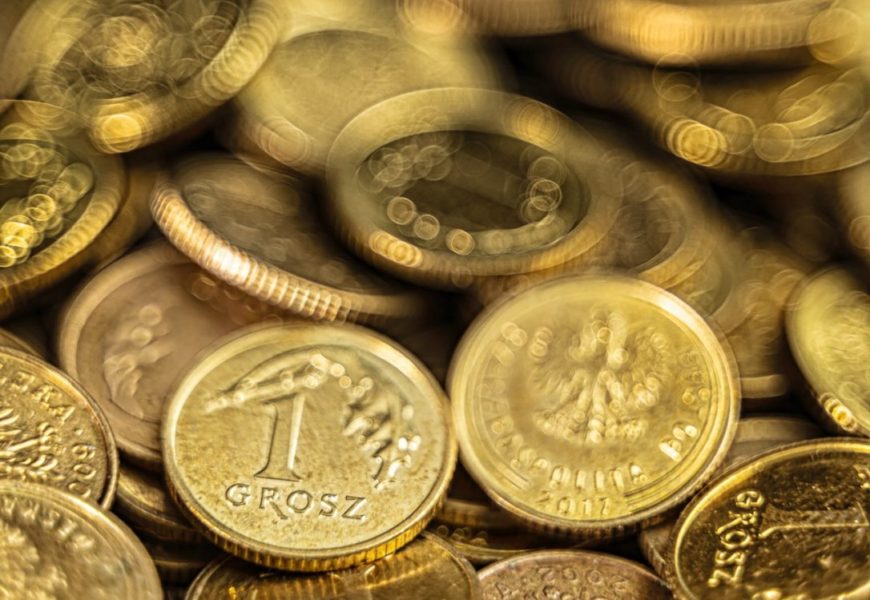The most original request for a handout I’ve ever heard came from an elderly street dweller in Toronto. Confronting a well-dressed, attractive couple about to enter a theater, he extended his palm and growled in a surly voice, tinged with disdain, “Come on. What do you need all that money for?”
The theater-goer who was the target of this case of panhandling with attitude had been reluctant to give anything. But now he broke into a smile and handed over a quantity of money. I can’t even estimate how much he gave. I was too busy smiling, along with everyone nearby, at the wit, boldness, and success of the panhandler’s barb.
It’s easy to see this anecdote as an object lesson in greed. The poor but wise street-dweller confronts the wealthy theater-going couple and teaches them a lesson. But to be fair, the donor and his companion may not have been guilty of greed.
There’s nothing wrong with the worldly success that can lead to fine clothes and a night at the theater. All of us cherish spending our earnings on such pleasures. Yet the elderly panhandler asked a question that flies like an arrow to the heart of the Christian message – just how much do we need?
“How much of what?”, one might ask, since money isn’t the only object of our desire. But our other appetites – physical hunger or shop-till-you-drop consumerism among them – have limits. Eat too much, and before too long, our belly aches. Buy too many consumer electronics and we end up discarding the old; stuff too many summer outfits into our closet and we struggle to choose what to wear.
Even the titans of material excess have limits. The former first lady of the Philippines, Imelda Marcos, who became infamous in the eighties for, among other things, her massive collection of shoes, stopped when she had only 3,000 pairs. Even among the superstars of consumption there is eventually a stopping point.
But when we surrender to greed, when we hunger after money itself, there seems to be no limit to our desire for more. Money unlocks the world’s treasures. Do we love money for its own sake or because of the treasures it can buy us? How often do we say, “If only I had a bit more – just this much.”
But is it even possible, when in the grip of the greed and avarice that so often beset us, to have enough? Is there ever such a thing as just enough money? The writer John Steinbeck answers with a resounding “No!” In his novel Winter of Our Discontent, he says there are only two measures of money, “No Money and Not Enough Money.”
The question of how much to hold and how much to give has long beset humanity. The book of Proverbs warns us that if we ignore the cries of the poor, then someday our own cries will be ignored. Such warnings may spur us to give more, but we are better off if we deepen our character and practice the virtue of generosity.
Jesus tells us how an elderly widow, impoverished, gives a small coin in offering. In doing this, her generosity exceeds all those who, having much more, still give a much smaller portion of what they have. Such generosity from the poorest is meant to inspire a more generous spirit in all of us.
But concern for the marginalized has not been the only motive for posing the question – “How much do I need?” In the first few centuries of the early church, the so-called “desert fathers” sought to emulate the life of Jesus by living a solitary life of denial and poverty in the deserts of Egypt and Syria.
A thousand years later, St Francis of Assissi gave away his abundant wealth, lived a life of poverty, and founded a religious order. He and his followers sought the treasure in heaven promised by Jesus to those who would sell all they owned, give to the poor, and follow him.
Both the desert fathers and the followers of St. Francis saw “too much” as a hindrance to a better life. They had all asked the same question – how much do I need – and they had found an answer.
Today in the modern west, where a better life means more of everything, how often do we even ask the question? Whether we hunger for the things money can buy, or just for money itself, we are often inflamed to a state of perpetual acquisition. Like a car whose gas tank is constantly running near empty, we always need a fill-up. A life of voluntary poverty, modeled on the desert fathers or inspired by St. Francis, may be far beyond the reach of most of us.
What we can do, as we cruise the mall and surf the internet, wallet at the ready, is to keep in mind the twin figures of the panhandler with his bold and probing question and the widow holding out her small coin.
How much do I need? And how much will I give?
Suggested Reading
The Widow’s Offering – Luke 21:1-4





